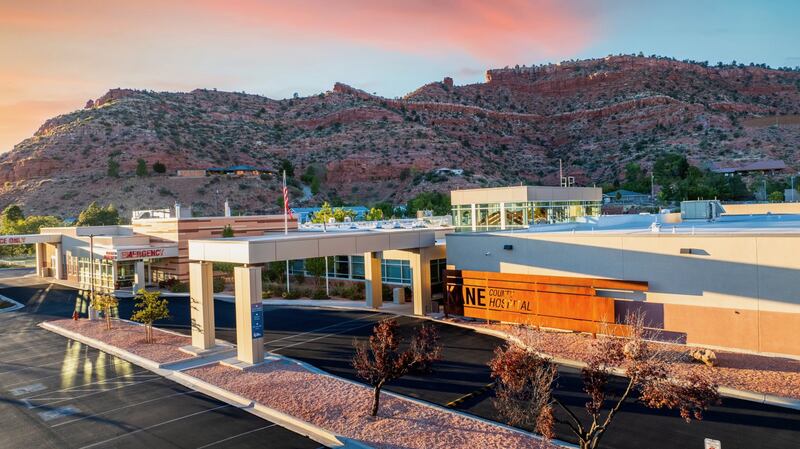The issues leading to a halt in regular ambulance service to Arizona by Kane County Hospital emergency service providers aren’t unique to the Utah-Arizona border.
The conflict highlights broader issues some critics have with state laws requiring health care operators to get what are called certificates of need to provide certain services. Arizona requires such certification of ambulance operators, and difficulties the Kane County Hospital has experienced in securing the necessary paperwork led it to reluctantly halt regular ambulance service across the state line earlier this month.
“Research shows over and over that states with (certificate of need) laws have fewer health care options. This means patients pay more, travel farther for care, wait longer for care and receive lower quality care,” said Jaimie Cavanaugh, legal policy counsel with the Arlington, Virginia-based Pacific Legal Foundation. The foundation is a public interest law firm that fights government overreach and views certificates of need as a hindrance to the provision of health care.
The organization wrote a critical opinion piece on the situation unfolding on the Utah-Arizona state line, outlining some of its concerns. The Kane County Hospital move, even as officials from the entity continue to work with Arizona officials to secure a certificate of need, has prompted concern on both sides of the state line. Some worry that limited ambulance options in extreme northern Arizona could hinder the provision of care in emergencies, as there is no alternative to Kane County Hospital’s ambulance service.
“This self-inflicted wound was completely avoidable. Rising health care costs nationwide call for removing administrative barriers for both new and existing health care providers rather than creating roadblocks. And research shows that (certificate of need) laws result in higher costs, fewer options, and lower quality,” reads the Pacific Legal Foundation opinion piece.
For some 40 years, ambulances operating out of the publicly owned Kane County Hospital in Kanab have served Fredonia, other Arizona communities, the North Rim of the Grand Canyon, House Rock Valley and other parts of northern Arizona. After learning the hospital could face penalties if it operated in Arizona without a certificate of need, though, it halted regular service.
A “temporary and partial Band-Aid” allows ambulances from the Utah hospital to go to Arizona in certain emergencies or if other ambulance operators are unavailable, according to Kane County Commissioner Celeste Meyeres. Still, a declaration of emergency remains in effect in Fredonia, approved on July 4 by local leaders, that’s meant to give Kane County ambulances the authority to serve the city.
Certificate of need requirements — which can apply to all sorts of health care services, depending on the state — are ostensibly meant to keep a check on health care costs “by restricting duplicative services and determining whether new capital expenditures meet a community need,” according to the National Conference of State Legislators.
A 2024 report reviewing prior academic assessments of certificate of need laws came away with a different view, though. “The accumulated evidence is overwhelming that (certificate of need) laws do not achieve their purpose. Instead, the balance of evidence suggests that these regulations increase spending, reduce access to care, undermine quality and fail to ensure care for underserved populations,” reads the report.

